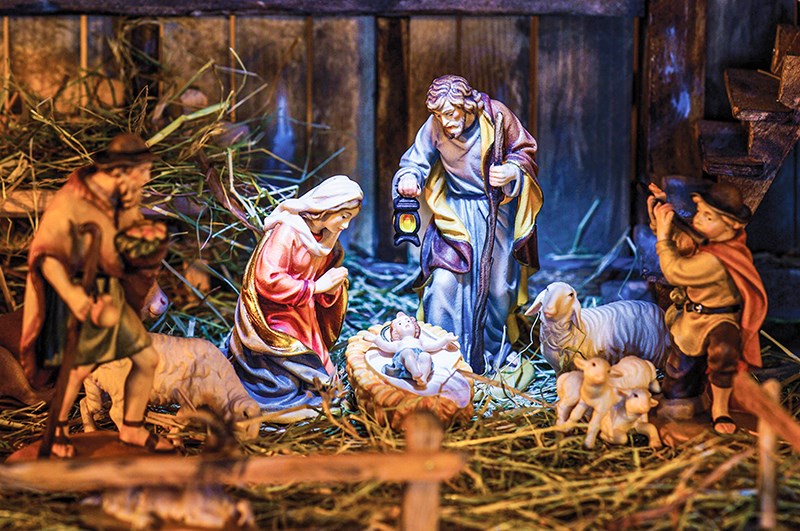Phil Egan
There is one chance in 365 that Jesus was actually born on Dec. 25th.
Believe it or not, there is nothing in the Bible to identify the date of the Saviour’s birth. Most Biblical scholars, in fact, think it likely Jesus was born in the fall. John the Baptist was born around the time of Passover, which was in the spring, and it’s thought Jesus was born six months later.
One thing is generally believed about the event – it wouldn’t have taken place as described in the Bible.
Mary and Joseph were said to have been travelling to their home to register for a census. These were generally restricted to Roman citizens, but no law would have required people to travel in the winter for practical reasons. Travel in ancient lands was particularly difficult at that time of year.
Nor would shepherds have been outdoors watching their flocks in December. It was too wet and cold then to have these animals out in the fields.
So, who decided that we should celebrate Christmas on Dec. 25?
That decision was made by Pope Julius I way back in 320 A.D. In the 4th century, using the Julian calendar, Dec. 25 was already a notable date. It was the date of the Winter Solstice, which we mark today on Dec. 21st.
In ancient civilizations dating back 5,000 years, the darkness of winter was a time of hunger and deprivation, and the Winter Solstice, the shortest day of the year, was looked on as a time of change and renewal as the sun began its return.
The Romans called their observation Saturnalia, and its parade of costumed revellers through the streets is still seen today in the Mummers tradition in Newfoundland.
The Winter Solstice observations were so universally observed in the centuries immediately after the birth of Christ that early church leaders thought it easier to incorporate these dates rather than to ignore them. Mid-winter celebrations were deeply embedded in the pagan psyche.
Even the tradition of Christmas gift-giving harkens back to the old Winter Solstice tradition of pagan times.
In Mesopotamian tradition, a king would trade places with a servant at these celebrations, serving dinner in a unique role reversal. The paper crowns contained in Christmas crackers are a modern reminder of the ancient custom. Corporate Christmas parties, with the bosses entertaining the employees, also originate from this tradition.
Whatever the date selected, for Christians there can be no argument about celebrating the miraculous event that was the birth of Christ. After Easter and the celebration of the Resurrection, it is the most important date on the church calendar.
